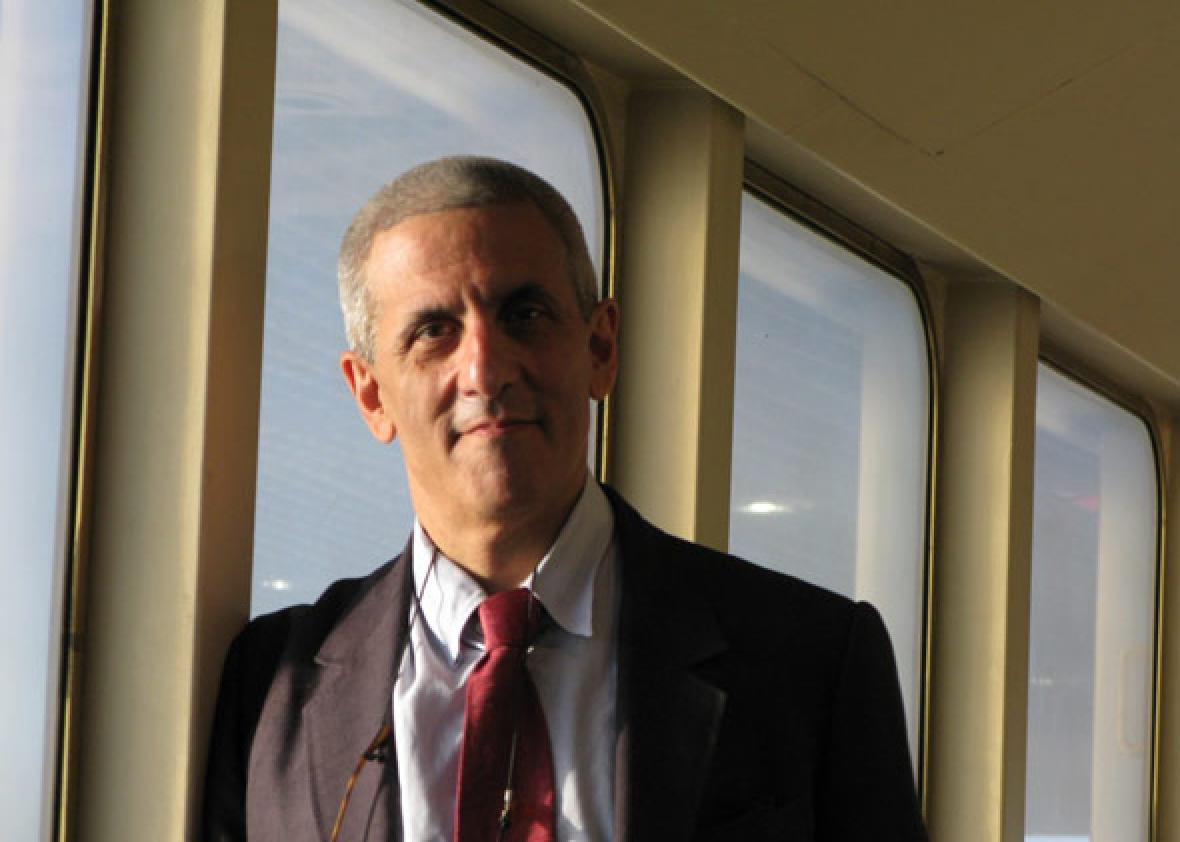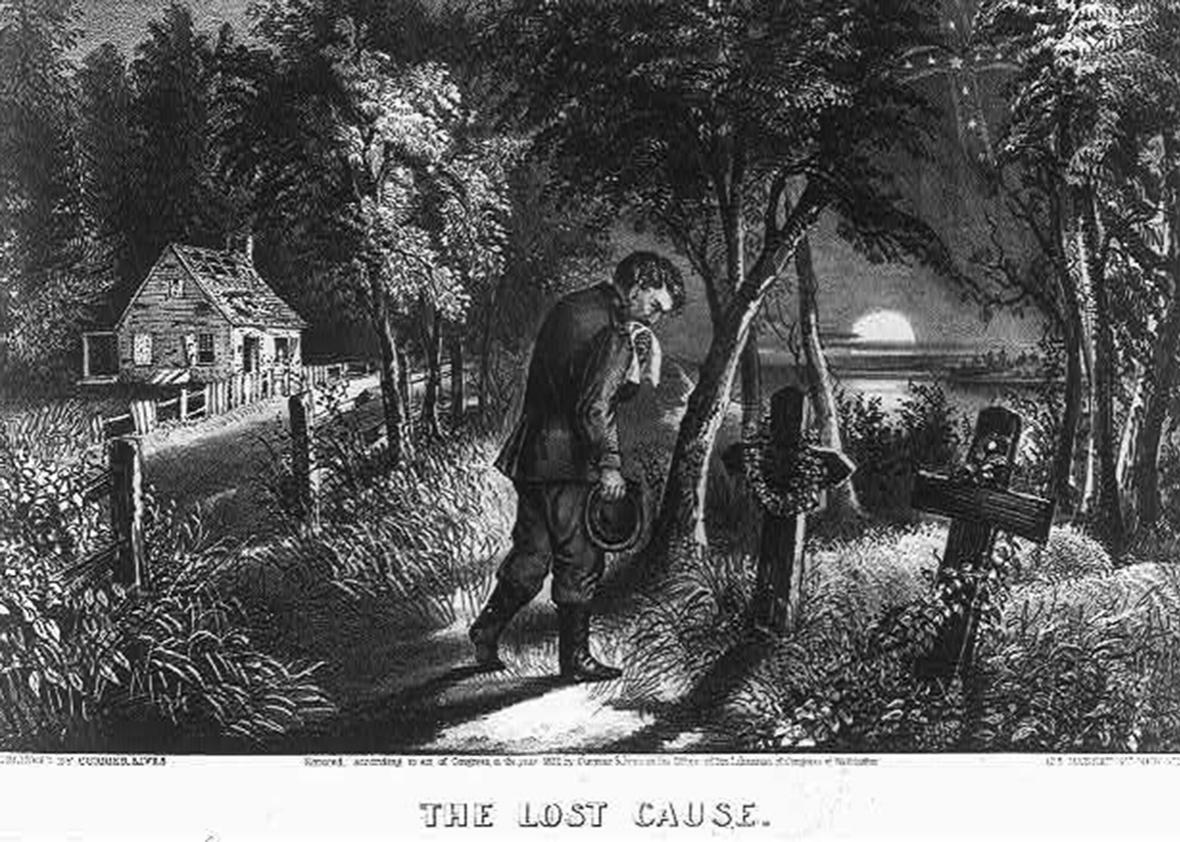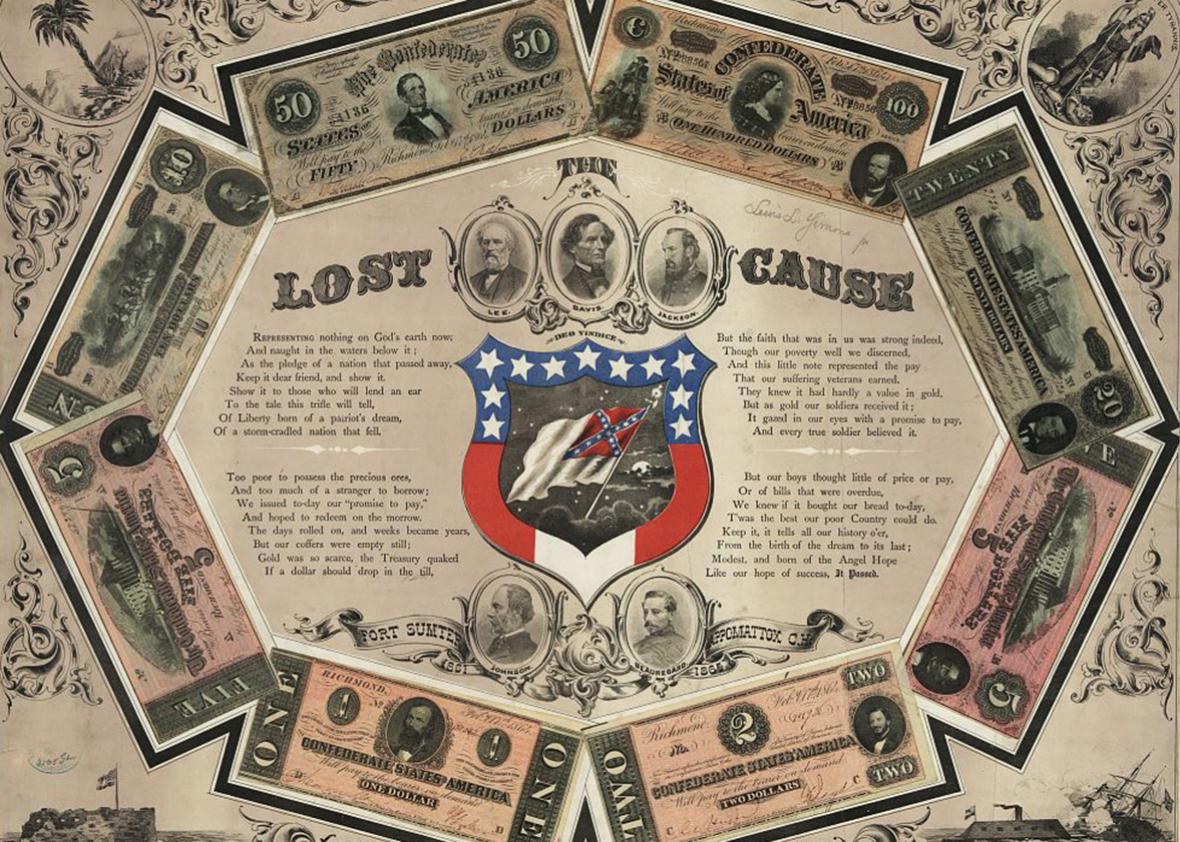In his new book, In Praise of Forgetting: Historical Memory and Its Ironies, journalist David Rieff questions the idea that remembering the past is an inherently virtuous practice that will help us solve present-day problems. It’s a philosophical argument that he pursues across the globe, invoking examples drawn from the histories of the United States, Argentina, Spain, Germany, Bosnia, Israel, and Ireland, among others. “What if,” Rieff asks, “a decent measure of communal forgetting is actually the sine qua non of a peaceful and decent society, while remembering is the politically, socially, and morally risky pursuit?”
This brief but powerful volume follows Rieff’s many previous books, on the war in Bosnia, humanitarianism, the global food system, war crimes, and the death of his mother, Susan Sontag. We spoke by phone about the advantages of strategic forgetfulness, the difference between history and collective memory, and the current debate over renaming statues and buildings on college campuses. The conversation has been edited and condensed for clarity.
With this book, you’re challenging a very prevalent bit of common wisdom—almost an orthodoxy. How would you describe that orthodoxy?
Today, and for quite some time, probably since the end of the Second World War, the dominant view among decent people, good people, nice people, has basically reflected the words of the American philosopher George Santayana, who has said, “Those who cannot remember the past are condemned to repeat it.” The view is that it’s moral to remember the past, and if we don’t remember the past, as Santayana said, we’re going to repeat all its horrors. And by extension, or by implication, it’s immoral to forget. You have a kind of sacralization—a kind of memory of past horrors made sacred. On two grounds: one moral, that to forget is to do the most profound kind of injustice to those who suffered and those who died. And on the other hand an empirical claim, which is that if people remember, they’re less likely to either fall into the trap of these crimes, or be the victim of them.
You cite a number of instances that contradict that empirical claim.
I don’t think the empirical claim is sustainable. I think the empirical claim is sentimental nonsense. I think you can make a more serious argument for the moral claim—I don’t dismiss that out of hand. But the empirical claim is rubbish, to be honest. I mean, the mass murder of the Jews of Europe in the 1940s did not prevent the near genocide in East Pakistan, or the country that became Bangladesh, in 1971. It didn’t prevent the Khmer Rouge from killing a million people in Cambodia; it didn’t prevent the Rwandan genocide in 1994. As far as I can see, we don’t learn much of anything from the past. And if people say that we do, I have frankly one answer for them: Syria.
I truly don’t understand—I’m not being disingenuous or rhetorical—I don’t understand how people got it into their heads that [knowing about] the crimes of the past provides some kind of prophylactic against crimes committed in the present. I see literally no basis for that. I think this is an exercise in mass wishful thinking. If we’re talking about intervention, if the idea is if there’s a genocide and if you remember the genocides of the past you’ll know to intervene in the present—that’s very nice, but in fact we don’t really know how to intervene. We don’t know what to do! The one time we’ve actually intervened in modern times on that basis, after in 2005 the UN passed this Responsibility to Protect doctrine, which in very limited and specific cases authorized international intervention to stop mass atrocities and genocide and such things, was Libya [in 2011]. It seems to me that intervention there made things exponentially worse, as I think even a lot of the people who supported it at the time would now admit. And nobody knows what to do with Syria.
So even on that basis, on the basis that maybe the memory of the past gives you a moral guidepost to intervening in the present … this seems to me just kind of, it’s wishful thinking bordering on narcissism. There is a kind of fundamental hubris of this time, in that we say, “We know better. We’re not going to make these mistakes.” Meanwhile, you know, the world is burning up with global warming, and it’s very possible our descendants will curse us for having committed far greater crime against the environment than pretty much any other. Formulas like “Those who forget the past are condemned to repeat it” … I think those are actually counterproductive.
You also mention some invocations of memory that have worked counter to the good.
That’s the other part of it. I want to be very clear. I am not trying to turn George Santayana on his head. I’m not saying “Those who remember the past are condemned to repeat it.” I’m not just flipping it. These kind of blanket statements always strike me as incredibly hubristic and unwise.
What I’m saying is, there are examples—not a few, but quite a number of examples—where remembering, far from leading to truth, justice, and reconciliation, has led to more war. Three obvious examples of that are the Balkans in the 1990s, where I was a correspondent; Northern Ireland, for 30 years and, some people would say, for 800 years; and the Middle East. And in all three of those cases it seems to me that invoking history, invoking the wounds of the past, the crimes of the past, the conflict of the past, has led to more bloodshed.
And then, conversely, you have some instances of what you might call beneficial forgetting, or strategic forgetting?
Nietzsche called it “active forgetting.” The thing is … there are two kinds of remembering. There’s the remembering around the time an event takes place. Let’s say, in South Africa, or Argentina. Those are instances where, with the crimes of apartheid or the crimes of the military dictatorship in Argentina, people are alive who suffered those affronts. And I think there’s a much stronger case for truth and for memory then, than say either the Balkans or Northern Ireland for example, where a lot of the crimes being remembered, actually nobody remembers.
The thing about collective memory is that it’s not memory at all. It’s the myth that a society constructs or agrees to or has imposed on it, depending on which case you’re talking about. A story I tell in the book is that when I was a correspondent in the Balkans in the early to mid-’90s, I was in Belgrade, in Serbia, and I went to see a nationalist politician. And as I was leaving one of his aides gave me a folded-up piece of paper. And when I was going up to my hotel I opened the piece of paper and it said only “1453.” Which was the year, as you know, that Constantinople fell to the Muslims, to the Turks. So what was he telling me? He was telling me that the Serbs of today are defending Europe, trying to defend Europe the way the Byzantines tried to defend Europe half a millennium ago.
Now look. Nobody remembers what happened then. That is just, that is using memory as a weapon of war, and as a way of keeping grievance alive. There’s an old Irish joke that, in the darkest time in Northern Ireland, people said “This war’s going to go on forever, and even when everyone’s forgotten what it’s about, they’ll still remember the grudge.”
I’ve been interested in Ireland my whole life, and I spend a lot of time there, and in March it was the 100th anniversary of the Easter Rising, of the beginning of the final and successful Irish Revolution. There was a poster that the Dublin City Council had put up all over the place. It was a celebratory poster that said “1916-2016. How will you remember?” And when I saw it in the cab coming in from the airport for the first time, I thought, “You won’t remember! YOU—unidentified native of the Republic of Ireland—will not remember, because you weren’t alive when it happened, your parents weren’t alive when it happened, your grandparents weren’t alive when it happened.”
What is really going on is: How does the society want to think about its own past? And when you put it in those terms rather than in this sacralized language of memory, then, it seems to me, you have every right to say, well, perhaps societies should emphasize the present and not the past. And for that, a certain amount of forgetting can be a very good thing.

Megan Hustad
What’s the difference to you between collective memory and history? Is there a way to do collective memory well, that brings it closer to history?
I don’t think so. I think the fundamental difference is that collective memory is about the present. History is really about the past. There’s the great English novelist L.P. Hartley, who wrote a book called The Go-Between. And the first line of that book is “The past is another country. They do things differently there.” History is about the difference between the past and the present. Memory is about using the past for the purposes of the present, or for some group in the present. History is critical history … Memory serves the present. History is the material out of which this collective memory is made. But collective memory, commemoration, is not history. If it is history, it’s so simplified and reduced to be, as I say, to be closer to myth than to history in any usable sense.
I was thinking about slavery in the United States through most of my reading of your book. I’m convinced by many of your arguments, but thinking about the history of slavery, I kept getting tripped up. In part because, whenever I’ve written about the history of slavery for Slate, I’ve received a ton of feedback from deniers, people saying: “It wasn’t that bad,” or “They” (meaning black people) “should just forget it.” What is the difference in your mind between deniers or denialists, and forgetting?
In Europe these days, if you deny the Holocaust, or in France the Armenian genocide, someone can take you to court. I don’t think you can be jailed for it, but you can certainly be fined for it. So it’s illegal to deny the Holocaust in a number of European countries. We don’t have that kind of system, and I don’t think too many Americans would want a system in which you’d have to basically scrap the First Amendment in any usable way … That’s what God made textbooks for! Public education is about whatever the consensus view of a society is. Beyond that I don’t see what you can do about denial.
But again I want to emphasize. I am not suggesting that memory is always a bad thing. And maybe there are things in a nation’s past, shameful things, that should be more emphasized. But let’s not confuse it with memory. First of all, there’s no such thing as collective memory. There’s only individual memory. Collectivities don’t remember anything, any more than they feel anything. You remember what you did last week. You don’t remember the slave trade. Or you remember 9/11. A society can’t remember. So already the use of the term memory is a kind of mystification in my view. And one that can be kind of troubling.

I write a lot about the memory of the Civil War in my book, and I would submit that the collective memory that existed in this country until well into the 1960s of the war was actually a terrible version. It was the Southern version, basically. The War Between the States, Brother Against Brother, The Noble Lost Cause. Basically, even though the South was defeated militarily, it won the memory war. I’m 63, and I remember the TV shows of the ’50s and early ’60s, when I was a kid. And there was a show called The Gray Ghost, about a Confederate guerrilla in Virginia called John Singleton Mosby. From my perspective that would be like making a TV show in Germany, in 1960, with a Wehrmacht officer as the hero. So that it’s not as if we have any guarantee that a society’s version of events, version of the past, that is commemorated is going to be either accurate or moral. Which again isn’t a reason to scrap memory, but is a reason to be more skeptical and be less sure that it’s always “better to remember.”
Have you been following the debate over the renaming or removal of monuments and buildings dedicated to objectionable historical figures on college campuses? What do you think about it?
I went to Princeton, so, yes! [laughs] I think it depends on the case. I think Woodrow Wilson was a truly terrible man and a truly terrible president. I’m not a fan of pretty much anything he did. I do think that there are cases where it seems to me it’s not a bad thing to change the names. My own view, which is maybe part of my own kind of caution, is that this should be exceptional. That it really should be the case of a figure who really did commit terrible crimes.
I was for the effort to force the removal of the statue of Cecil Rhodes [at Oxford]. I thought in a multiracial society having a statue to a great racist imperial figure … that seemed to me a perfectly reasonable change to make. I can see a case for taking Wilson’s name down. It’s not going to happen, because there’s too much alumni money betting the other way. But I’m not entirely against that. Woodrow Wilson undid whatever small progress had been made in race relations in the United States, and did a lot of other awful things. I’m not for a blanket policy of keeping these things up. I think every generation certainly has the right to reconsider these things.
Listen, everybody agrees with this on some level. It’s just where you draw the line. Let me give you the obvious example. When [dictator Francisco] Franco’s regime fell in Spain in the 1970s, seriously, did anybody, including all the people who are complaining about these students who want to take the Rhodes statue down or take Woodrow Wilson’s name off various places in Princeton, would anyone have said they should have kept Franco’s name on streets in Spanish cities? Nobody thinks that! I mean, a few fascists, but nobody thought that the Spaniards were wrong to change those names.
So basically the principle is a perfectly reasonable one. You argue it on a case-by-case basis.
What reactions have you gotten to the book?
I think people in the human rights movement and in the development world by now are sort of used to me, and they’re like “Oh God, not him again” … They think I’m a contrarian; I think I’m not accepting the current Kool-Aid that they’re selling!
I’m in the middle of an online debate [about the book] with this group called the International Center for Transitional Justice. They say that they’ve gotten more responses to this debate than they have in a long time. For some reason, the debate seems to interest people. The reaction to the book has been very good; I’m surprised.
So there it is. Whether that’s because they don’t understand the full horror of what I’m saying, or I don’t understand how mainstream I actually am, I’m not sure!
